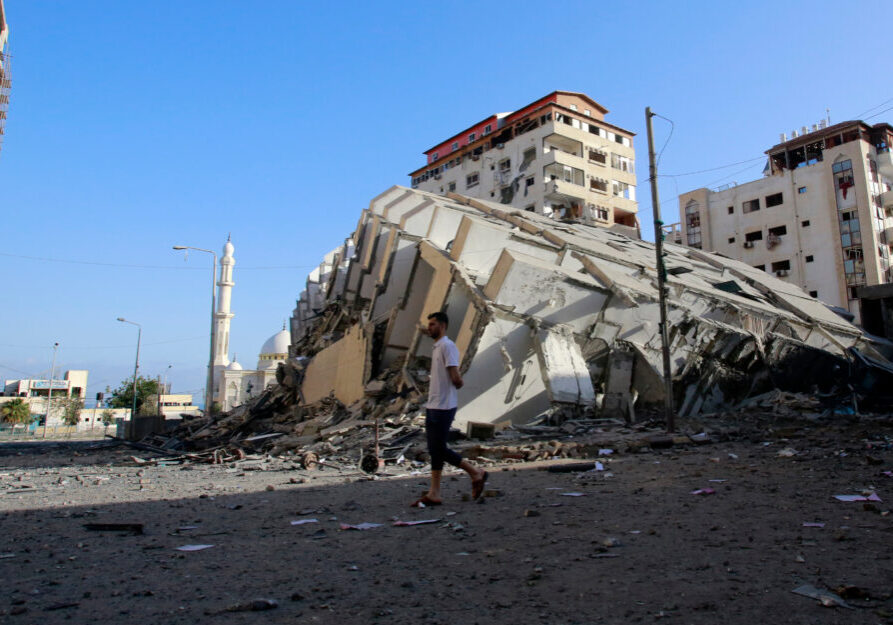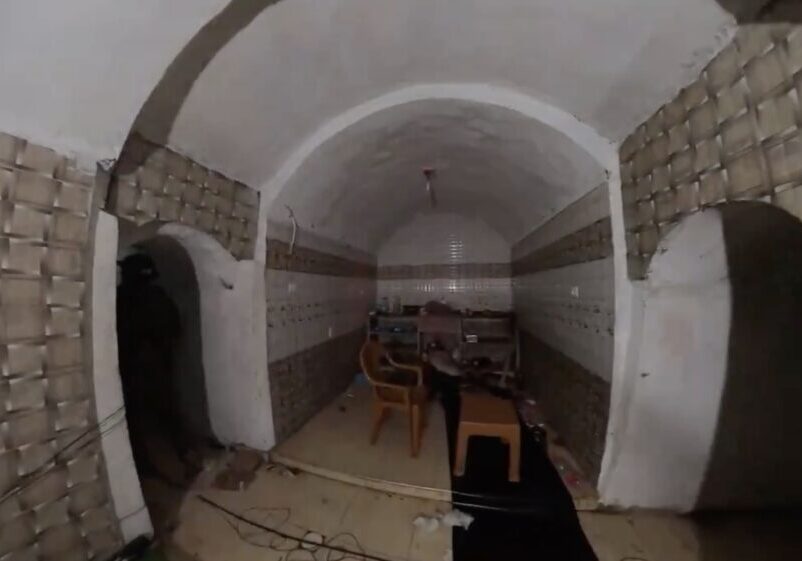Australia/Israel Review
Lebanon: Some Perspective from the Arab World
Oct 1, 2006 | External author
By Asher Susser
Anyone following the war in Lebanon in the Israeli media could not but come away engulfed in deep depression. Israelis and their media tend to focus obsessively on themselves, their own losses and failings. In contrast to the uniform and self-centred discussion in Israel, the war with Hezbollah and its consequences are being discussed in Lebanon and the broader Arab world in a more diverse and more sophisticated debate.
In the Arab world, views vary from the one extreme, which sees the ultimate victory of the Arabs in more missiles and rockets that will surely bring Israel to its knees in the not too distant future, to those at the other end of the spectrum, according to whom Hezbollah, Lebanon and the Arabs have, in fact, been defeated.
At the height of the war, as Hezbollah rockets regularly sent hundreds of thousands of Israelis scurrying to the shelters like “rabbits and mice,” as some of the Arab media noted with undisguised gratification, the mood tended to be militantly euphoric, buoyed by the widely broadcast images of Israeli suffering and humiliation. But as the war came to its conclusion and life in Israel returned pretty much to normal, opinion in the Arab world has shifted to more sober analysis, as Lebanon, Hezbollah and the Shi’ites face the daunting task of what will probably be years of multi-billion dollar reconstruction.
Even a cursory perusal of the Arab press will reveal that Hezbollah’s status in Lebanon has changed for the worse, as many Lebanese come to the rather shocking realisation that the south of their country, unknown to them, had in fact been transformed into an Iranian and Syrian launching pad against Israel, posing an existential threat to their own livelihoods and to their entire country. Hezbollah is now on the defensive, trying to protect its political assets against a more assertive Lebanese domestic majority that seems more determined than ever to contain Hezbollah’s “state within a state,” so that they are not drawn again into a destructive war with Israel.
Many in Lebanon, especially non-Shi’ites, but also some important Shi’ite spokespersons, are calling for an end to the armed phase of Hezbollah’s development and its integration into the Lebanese political system, like all other political parties. In other words, they are demanding the disarming of Hezbollah.
Muna Fayyad, a Shi’ite professor at the University of Lebanon, and the Mufti of Tyre, Sayyid Ali al-Amin, for example, both questioned the right of Hezbollah to bring disaster on the Shi’ites of Lebanon by dragging them into an ill considered adventure they never wanted, in the interests of a foreign power like Iran, about whom they were never consulted.
Nasrallah now has to contend with his newly constructed image as the destroyer of Lebanon rather than its protector, as he himself regularly claimed before the war as a main justification for the very existence of his militia. His post-conflict interview explaining that he would not have ordered the abduction of the two Israeli soldiers had he expected such a ferocious Israeli response is indicative of this new predicament.
Arab commentators are considerably less impressed with Nasrallah’s strategic genius than some of their Israeli counterparts seem to be. They question the wisdom of his decision-making, as they wryly ridicule his claims of victory. A poll conducted in Lebanon in late August revealed that two thirds of the non-Shi’ite public believed that Hezbollah had actually been defeated in the war.
Hazim Saghiya, writing in al-Hayat, questioned whether victory could be celebrated on the ruins of Lebanon by a leader who had to remain in hiding. Another commentator in al-Hayat, Hasan Haydar, compared Nasrallah’s interview of apology to Egyptian President Gamal Nasser’s admission of defeat in 1967. The Arabs, he noted, were still paying for the defeat in 1967, and he wondered for how long the Lebanese and the Arabs would be paying for Nasrallah’s “ill-considered ‘victory.’”
Abd al-Mun’im Sa’id, the Director of the al-Ahram’s Centre for Political and Strategic Studies, urged the Arabs to follow Israel’s example and set up a commission of inquiry to establish how Nasrallah could have dragged Lebanon into war without the country and the home front having being at all prepared. Abd al-Mun’im questioned why Hezbollah had failed to fire its long-range rockets after Israel had repeatedly bombed Beirut, even though Nasrallah had vowed to do so. And what about the relative ineffectiveness of the short range rockets? The damage they caused was limited, and a significant proportion of the Israeli casualties were actually Arabs.
All of the above has emboldened the Lebanese Government to deploy its army in the South, which it had not done for over 30 years, and to accept the stationing of a more robust international force there as well. Neither of these had hitherto been acceptable to Hezbollah. These forces will not disarm Hezbollah, which will no doubt make every effort to rearm and replenish its depleted stocks. All the same, they do serve the purpose of reasserting the sovereignty of the Lebanese state in all of its territory. This in turn adds to all the other factors seeking to reduce Hezbollah’s freedom of action to operate militarily against Israel from the South.
None of this would have happened had it not been for the severe damage Israel inflicted upon Hezbollah’s civilian, political and military infrastructure. The civilian backbone of Hezbollah, the Shi’ite community of Lebanon, has incurred heavy loss of life and enormous property damage, which will take years to repair. The period of reconstruction might not be free of criticism for the leadership that led the community to this disaster.
And once rehabilitated would the Shi’ites of Beirut and the south be ready to endanger everything and go through their recent ordeal all over again, for what Hezbollah might feel required to do in the service of Iran and Syria? Moreover, a new Shi’ite middle class has emerged during the last generation and they are eager to integrate into the mainstream if Lebanese politics, something they might not be able to achieve as long as Hezbollah is perceived to be serving the interests of foreign powers.
In direct military terms, Hezbollah’s losses were heavy and will not be easily replenished either. Key installations and command and control centres were totally destroyed in the Dahiya area of southern Beirut and in the south of the country. Fortified positions, bunkers and stores in close proximity to the border with Israel have been demolished, and it is highly unlikely that Israel will allow their reconstruction under any circumstances.
The organisation lost between a quarter to a third of its fighting men. Bravado aside, in numerous encounters Hezbollah fighters fled the field of battle, leaving their equipment behind, to avoid direct confrontation with Israeli ground forces.
Much of Hezbollah’s long and medium range rocketry has been destroyed. They still have large stocks of the short-range rockets, which were the great majority of the over 4,000 rockets fired during the war into northern Israel. But their effectiveness is limited. It is true that the north of the country was almost brought to a standstill and the trauma of hundreds of thousands of Israelis in shelters or living as internal refuges in other parts of the country will not be forgotten. But in terms of loss of life the thousands of rockets were less effective than a pair of suicide bombers.
The Iranian strategic outpost that had been built up for future use against Israel has been defanged, at least for the meantime. It must have cost hundreds of millions to construct and has been lost prematurely, spent not very effectively and not at a time of Iran’s choosing. Moreover if intended to deter Israel from taking action, it achieved quite the opposite result.
Hezbollah, at this stage, is observing the ceasefire. They do not want a second round now. Nasrallah needs a breather, and has no choice but to accept the hitherto unacceptable in the form of the restoration of Lebanese state sovereignty to the south. The euphoria in the Arab media has also subsided. Nasrallah’s references to Israel as a society as flimsy as “cobwebs” seem somewhat less appropriate from the ruins of south Beirut.
An Egyptian commentator, Ali al-Ibrahim, noted recently that the Arabs had learned to differentiate between victories on television and real victories in the field. How long will it take the Israelis to do likewise?
Israel’s achievements in the war should not be underestimated, all the more so because they were attained despite the incompetent and indecisive handling of the military campaign by the triumvirate of Olmert, Peretz and Halutz.
The courageous citizens of Israel, who endured patiently in the shelters, and the brave and resourceful fighting men and women of the IDF, regulars and reservists, who put their lives on the line, deserve much better.
Whether the achievements of the war prove lasting or not is another question. Can the Lebanese led by Fuad Siniora’s Government build on the new political realities that the war has created? Will they be able to withstand the pressure that is bound to come from the Iran-Syria-Hezbollah axis that will seek to undo the consequences of the war and re-establish the status quo ante? Only time will tell, but these are questions that would not even have been asked had it not been for the war against Hezbollah.
Professor Asher Susser is Director of the Moshe Dayan Center for Middle Eastern and African Studies at Tel Aviv University. © Jerusalem Post, all rights reserved, reprinted by permission.
Tags: Iraq






